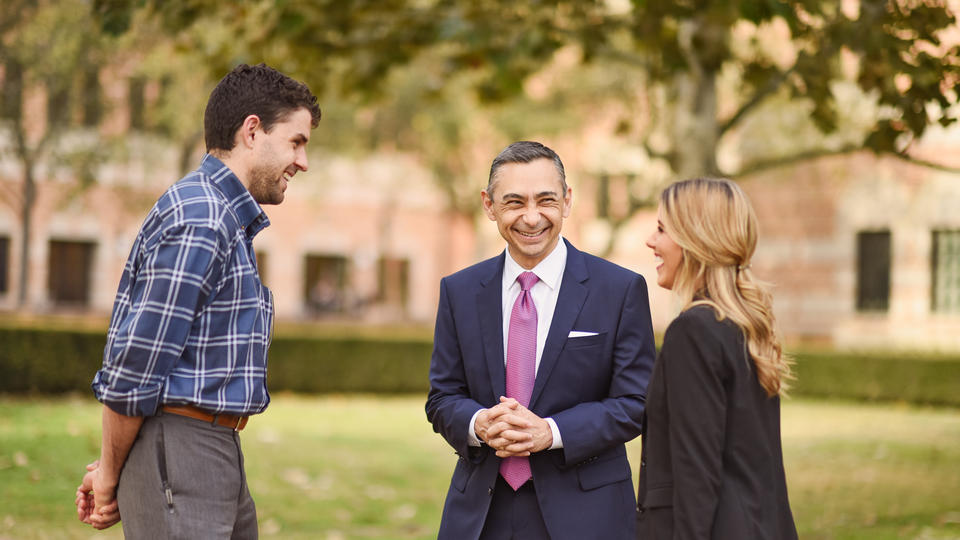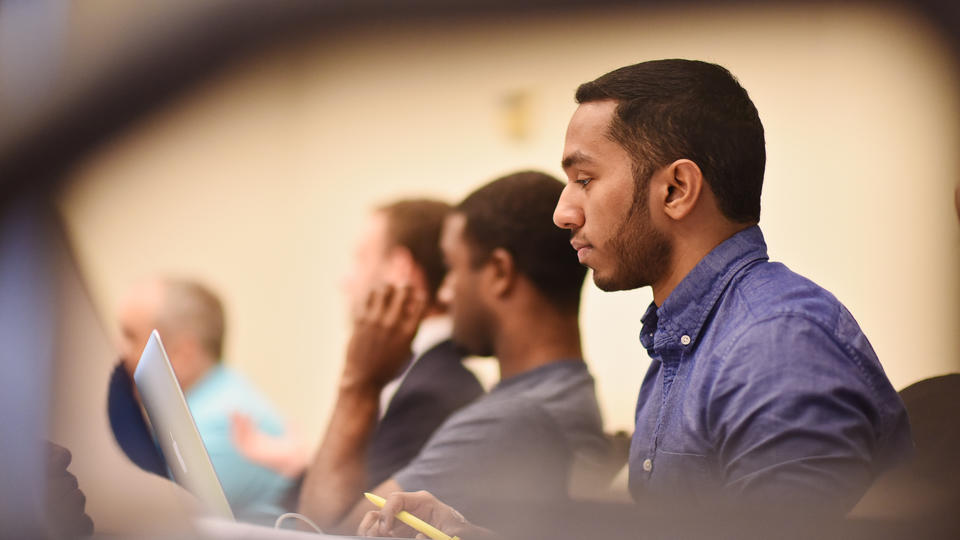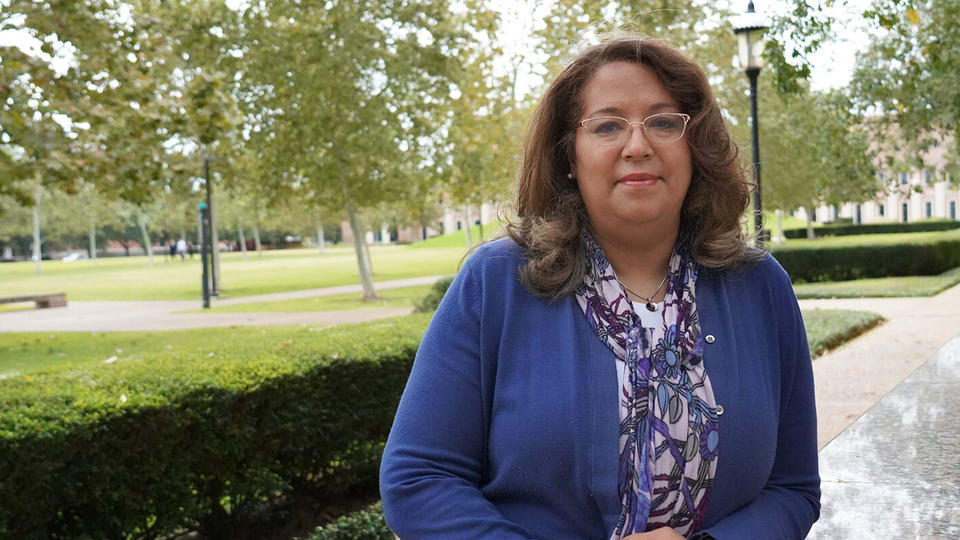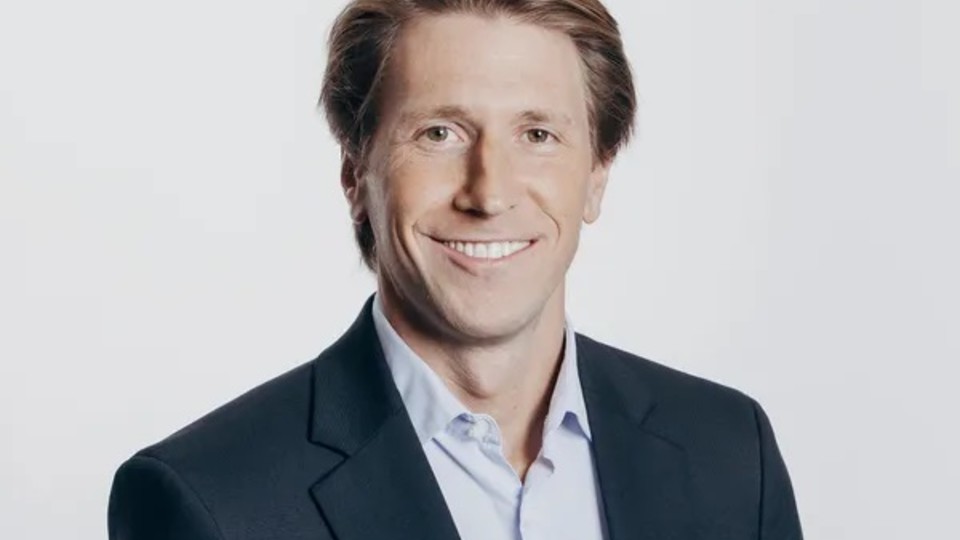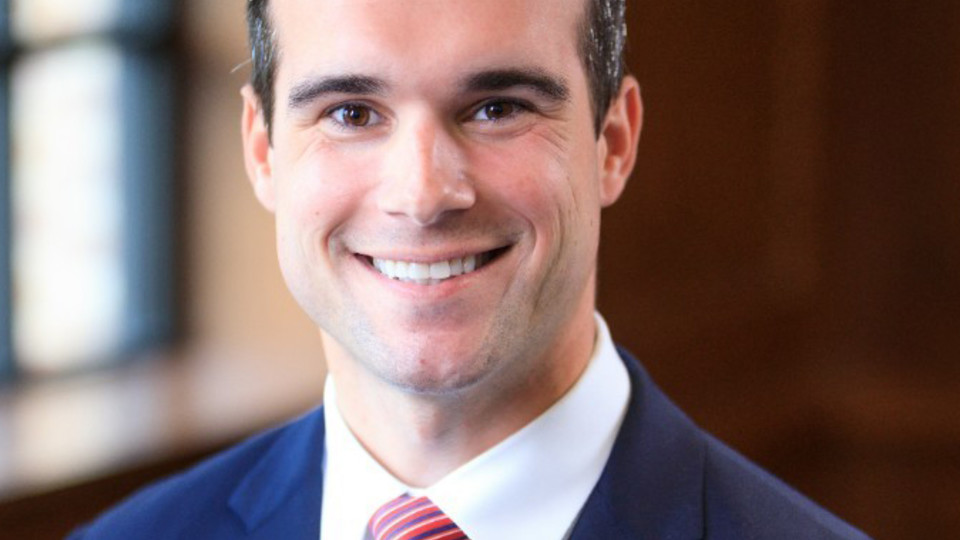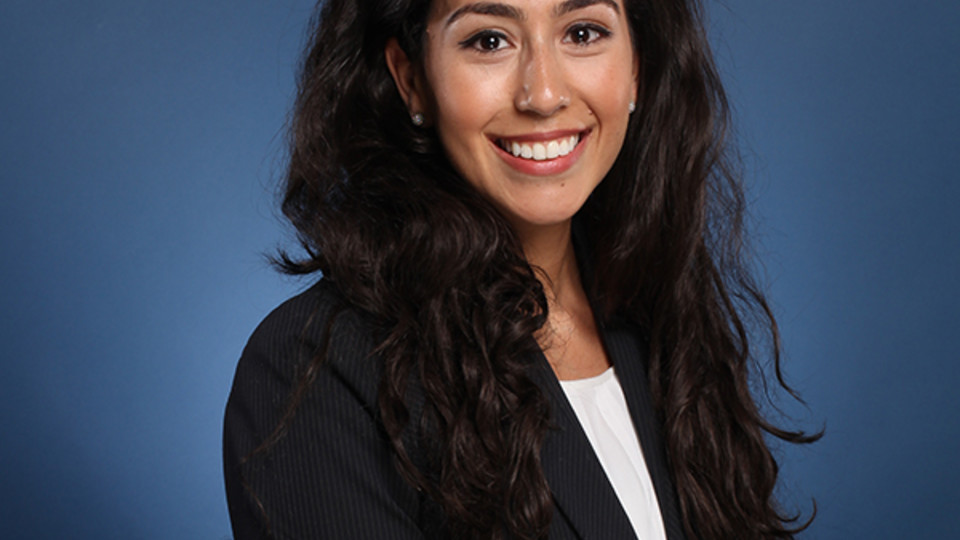The top online MBA programmes in 2022
The latest QS World University Rankings has named the top business schools for an online MBA. Rice Business came in at the number twelve spot.

Meet Jennifer Ortegon, MBA '12
Meet Jennifer Ortegon, a member of the Rice Business MBA Class of 2012
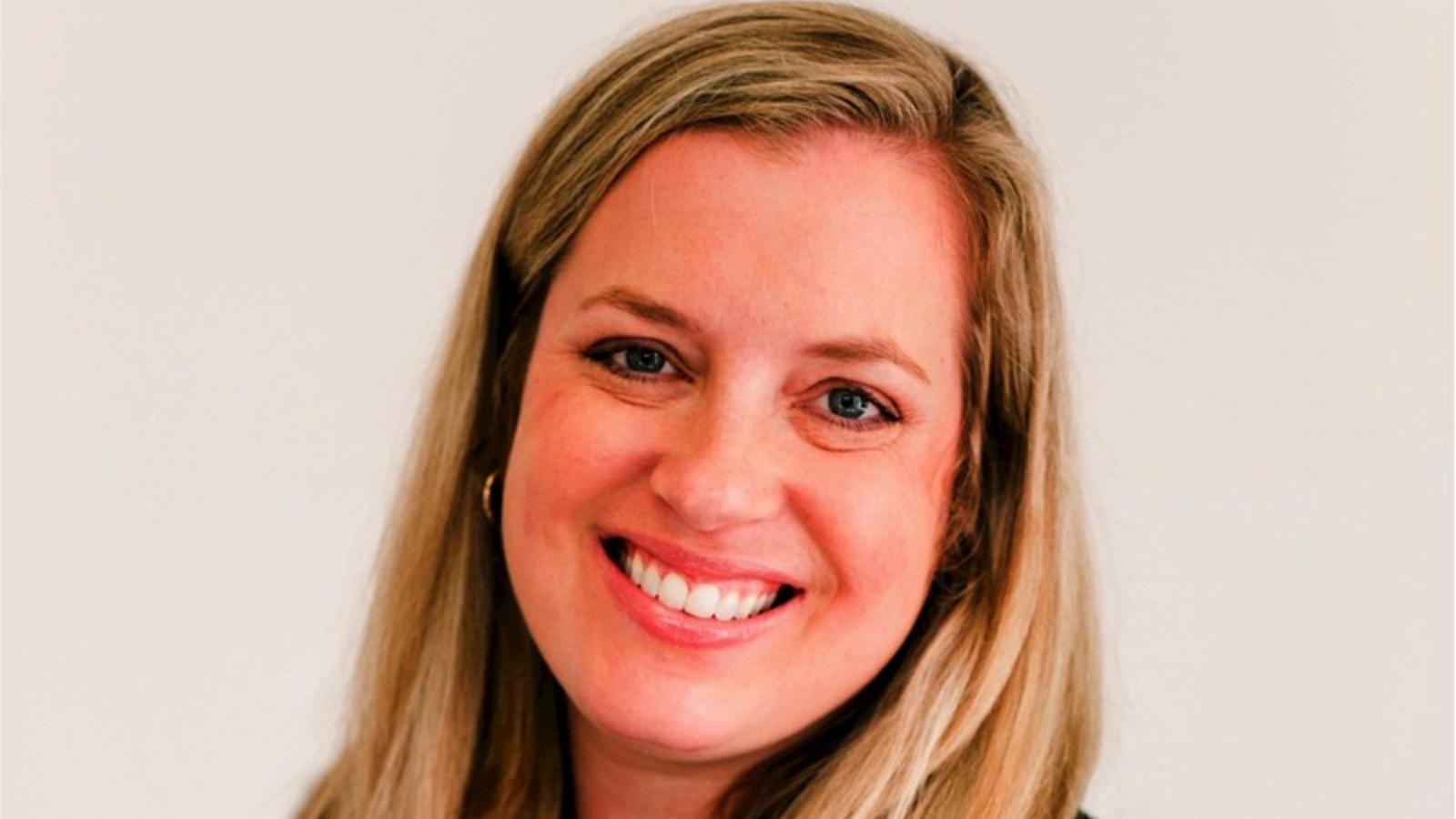
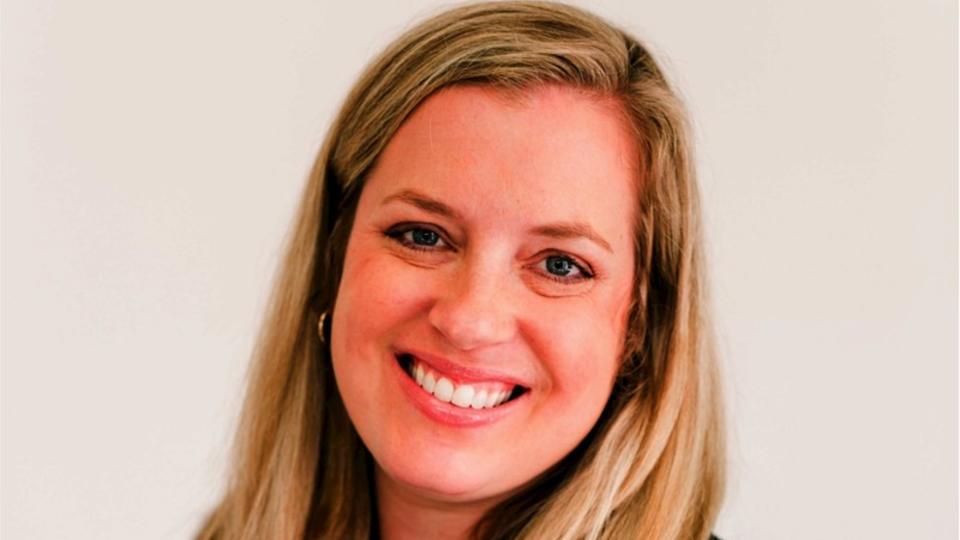
What was your pre-MBA career?
I was a high school Spanish teacher at Lamar High School in Houston ISD.
What is your post-MBA career?
I lead Medallia's Healthcare Sales team. We are SaaS company and help organizations deliver amazing customer, patient and employee experiences.
Why did you want to pursue your MBA?
There were many aspects of teaching that I liked; however, I wanted more options, flexibility and economic security in my career. I initially applied to the Rice Education Entrepreneurship Program (REEP); however, I ended up deciding to attend the full-time program and leave education.
Why did you choose Rice Business?
I attended Women's Preview Weekend and was totally sold! I was so impressed by the students, faculty and staff I met.
How has Rice helped your career to date?
Rice made me feel like I could be anything I wanted to be and empowered me to take my career in any direction I wanted.
What does it mean to you to be a woman in business?
The women from my Rice cohort have been invaluable to lean on since we graduated 10 years ago. I love how supportive everyone is in our careers, family and other aspects of life.
What advice would you give to prospective and current MBA students?
Look at the jobs that students got in the prospective program you are looking at. If they seem like jobs you would like, it's probably a good fit for you. And take ALL of the international trips you can!
You May Also Like
Meet LaMecia Butler, MBA '12
Meet LaMecia Butler, a member of the Full-Time MBA Class of 2012


What was your pre-MBA career?
Prior to pursuing my MBA I was a publicist and entrepreneur. I started my early career in sports and entertainment and then worked independently helping local nonprofits shortly before business school.
What is your post-MBA career?
I think my post-MBA work can be classified as community and economic development. In the past ten years, I've worked in the nonprofit, sports and tech industries. My roles have allowed me to work to improve outcomes for social enterprises for people with barriers to employment, oversee community relations and supplier diversity for two Super Bowls, distribute over $112M for the Hurricane Harvey Relief Fund and manage supplier diversity efforts for one of the largest tech companies.
Why did you want to pursue your MBA?
Initially I pursued my MBA because I wanted to gain the knowledge to help me consider and solve problems strategically. I wanted to work on complex issues that I could understand at a macro and micro level. I knew then and my career has demonstrated that these skills have allowed me to work and create impact across industries.
Why did you choose Rice Business?
No other school came close to Rice when I thought about the people — from my first encounter at a recruiting fair, to the multiple times I visited campus, I was surrounded by incredible people who enriched my experience. I've made life-long friendships with people I've met while attending and as an alum.
How has Rice helped your career to date?
Over the years I've not only used what I've learned in the classroom, but also called upon my classmates to help me with projects or life pursuits. But it's important that I can also help others with their careers which is why I've contracted Rice MBA graduates who became entrepreneurs for my professional projects.
What does it mean to you to be a woman in business?
Because of intersectionality, my experience has been centered around being a "Black Woman" in business. It's a life that comes with layered responses and biases from others that I can't always control — how people perceive my intelligence and capabilities based on my name, hairstyle, tone, etc. Because I started my career in male-dominated spaces, my framework for success has been to focus on doing my best work which then made my talent indisputable and can help me open the doors for others (who look like me).
What advice would you give to prospective and current MBA students?
Resist the urge to follow the crowd as it relates to your career - even if it requires more effort on your part to secure the position you desire. Take the courses that most interest you — even if it is a course outside of business school. You can't get the time you will invest in the process back, so make it worth your time.
Do you have any other comments or anecdotes you would like to share?
Take advantage of every opportunity that will allow you to grow. Whether it's a case competition, global trek or serving in some leadership position — these opportunities will shape you and give you perspective for your next professional pursuit.
You May Also Like
Opinion: Why Western companies are leaving Russia
Many companies in the U.S. and elsewhere have been quick to sever ties to Russia – going well beyond applying the sanctions ordered by their governments.

Meet Sophie Lin, MBA '22
Meet Sophie Lin, a member of the dual MD/MBA Class of '22
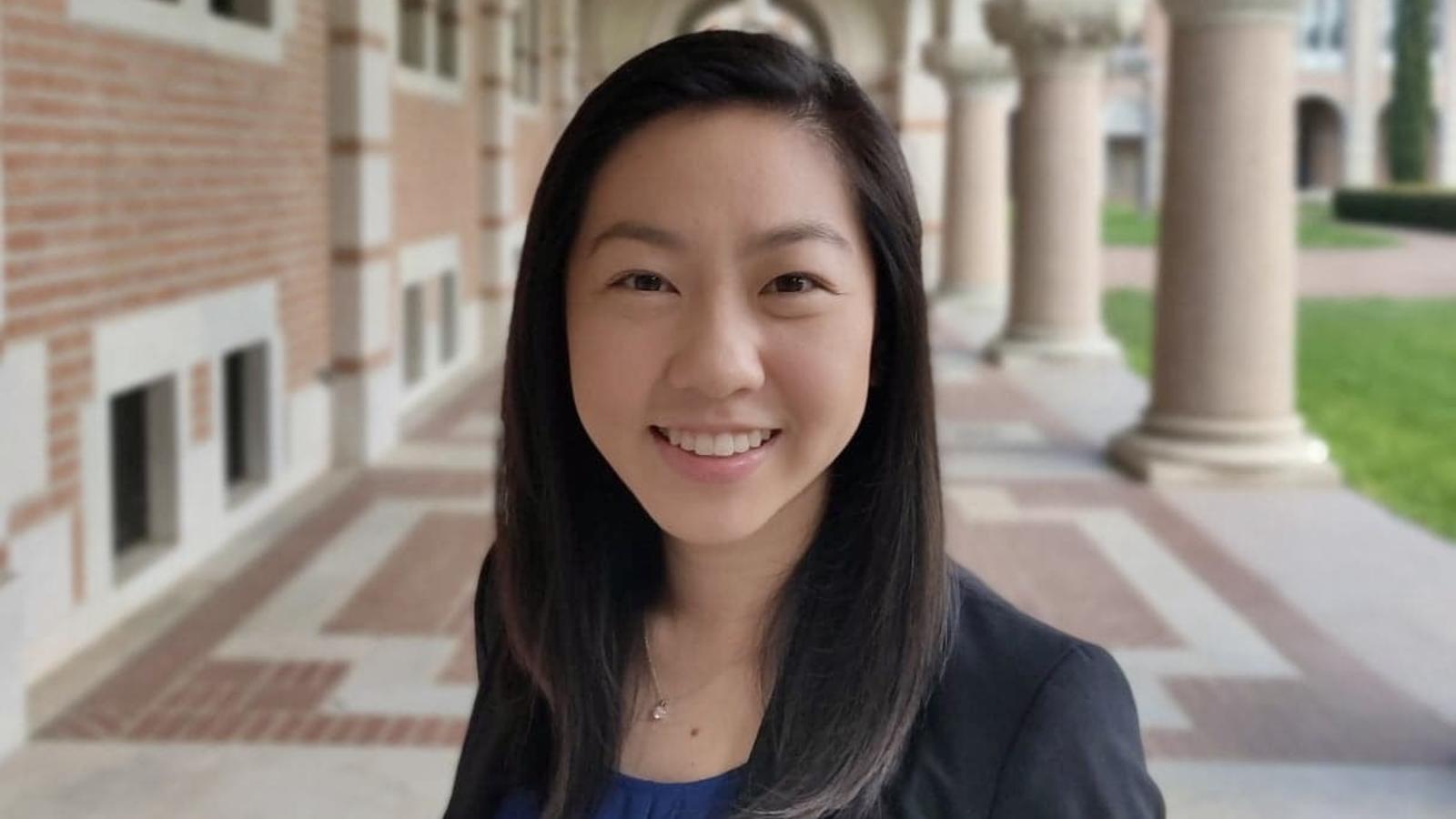
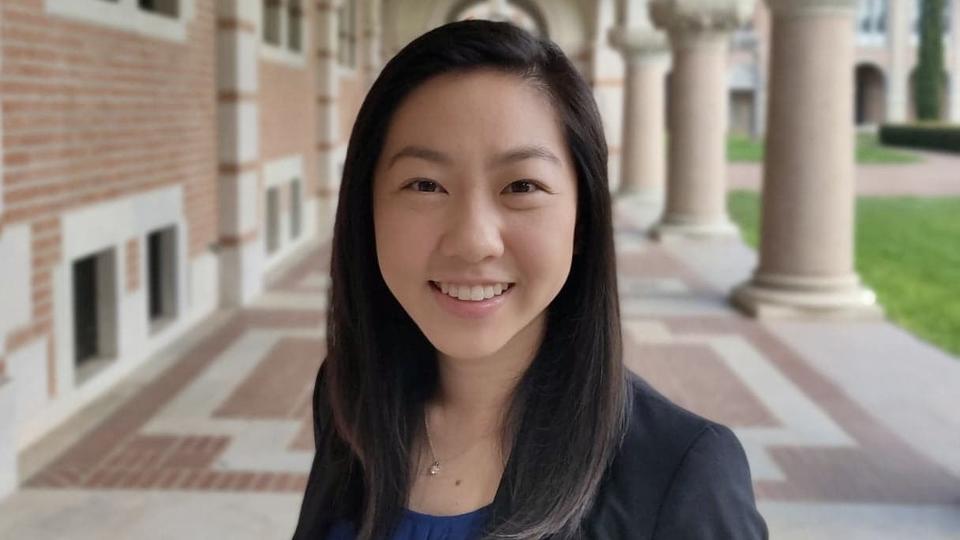
What was your pre-MBA Industry and function?
Before joining the Rice MBA, I was a medical student at Baylor College of Medicine (BCM) and had finished three years of clinical training. However, before medical school, I worked at Deloitte Consulting for 1.5 years as a strategy and operations business analyst. I primarily focused on the healthcare industry and worked on projects with health plans and providers.

What will be your post-MBA Industry and function?
After my MBA, I will be heading to residency and completing my training in family medicine.
Why did you want to pursue your MBA?
I knew that pursing my MBA would be a critical step in transforming my ambitions into reality. I aspired to not only continue fast-tracking professionally, but also venturing into entrepreneurship. I knew that an MBA would be the accelerator I needed to achieve my goals.
Why did you choose Rice Business?
I chose to pursue an MBA because I wanted to gain financial literacy and learn how to make sound business decisions without compromising patient care. I believed that an MBA would allow me to offer unique insights from both the medicine and business standpoint and prepare me to be a stronger physician leader. It was also important to me that I learned from colleagues with different backgrounds and corporate experiences.
What are you most proud of from your time at Rice Business?
I am most proud of recognizing my weaknesses as a leader and seeking one-on-one coaching through the Rice Doerr Institute for New Leaders to improve them. I have been able to implement some of the strategies that I have learned on my internships, and I have received positive feedback on my management style! I am also proud that I have been able to inspire others with my non-traditional journey and encourage underclassmen to embrace more “risky” paths!
What are you most proud of in your career?
I am proud that I’ve always pursued what I believed in and took leaps of faith when I didn’t have all the answers – with studying abroad, with Deloitte as my first job, with medical school/business school, with my internships. Of course, there were times when I felt extreme imposter syndrome, but there were also times when I felt tremendous growth. Because of my diverse set of experiences, I am more confident in who I am and how my skills can be used to enact change, whether that’s through advocacy, education or mentorship.
How has the Rice MBA helped you in your career?
Rice has challenged me to experience new roles and determine how I can best utilize my MD/MBA in the future. I have had the opportunity to intern at two different startup companies, one focused on maternal health and the other on cancer therapeutics and diagnostics. It’s rewarding to see how my clinical background can help drive business development and strategic decisions.
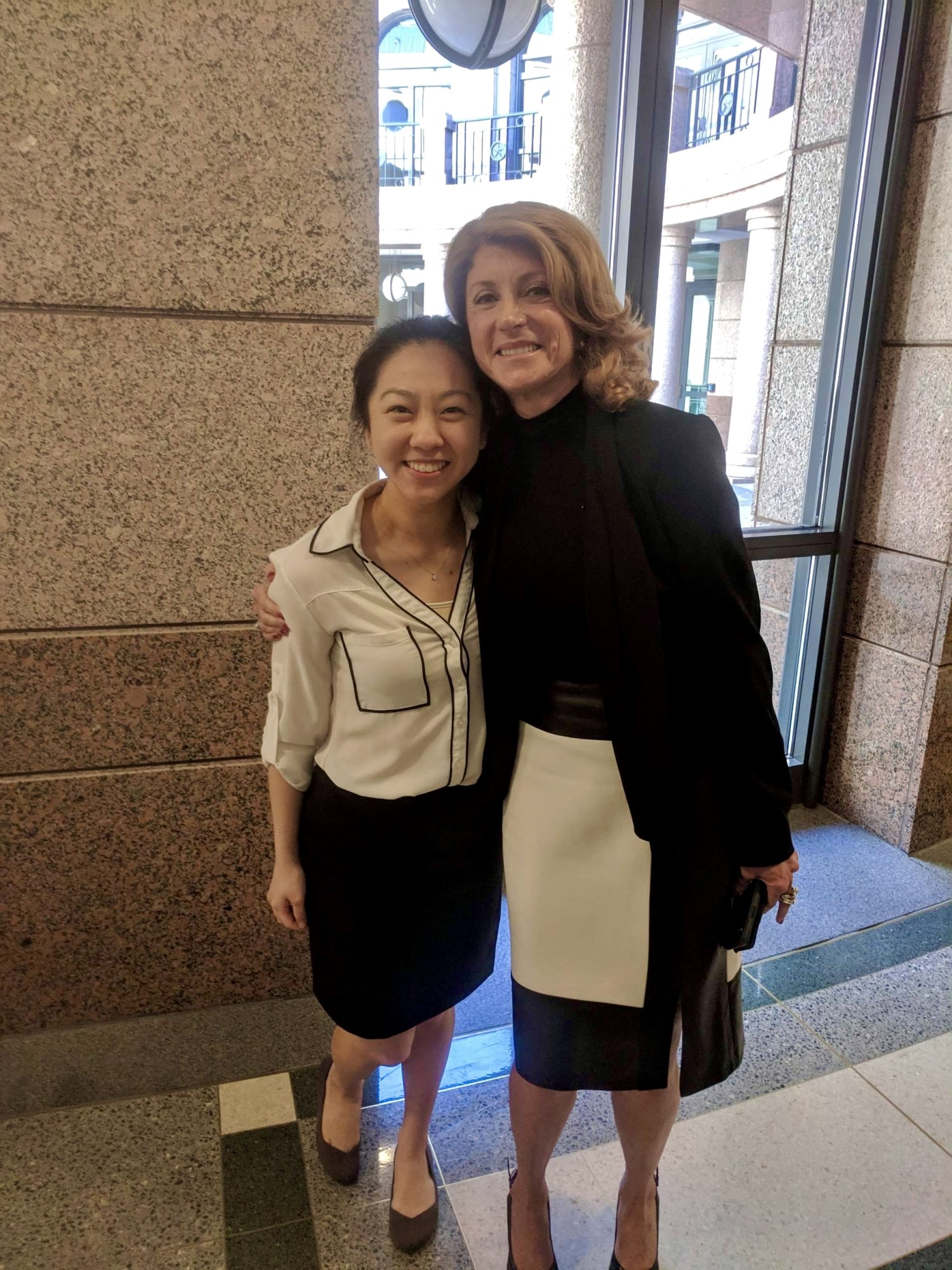
What does it mean to you to be a woman in business?
To me, being a woman in business means leading by example and advocating for policies that take into consideration women’s experiences — policies that challenge how we think about the pay gap, maternity leave, work-life balance and gender stereotypes. I also read a book during business school called, “How Women Rise” by Sally Helgesen, which helped me become aware of common habits that I and other women did that held us back in the workplace. My goal as a woman in business is to become a leader who can empower others and create a workplace that is equitable and inclusive.
What advice would you give prospective students who are considering an MBA?
I would say GO FOR IT! And keep an open mind. Business school is about exploration, personally and professionally, and making meaningful connections. Try new things, take on different challenges, be intentional with your time and pursuits.
You May Also Like
Meet Courtlynn Love, MBA '22
Meet Courtlynn Love, a member of the Professional Weekend MBA Class of '22
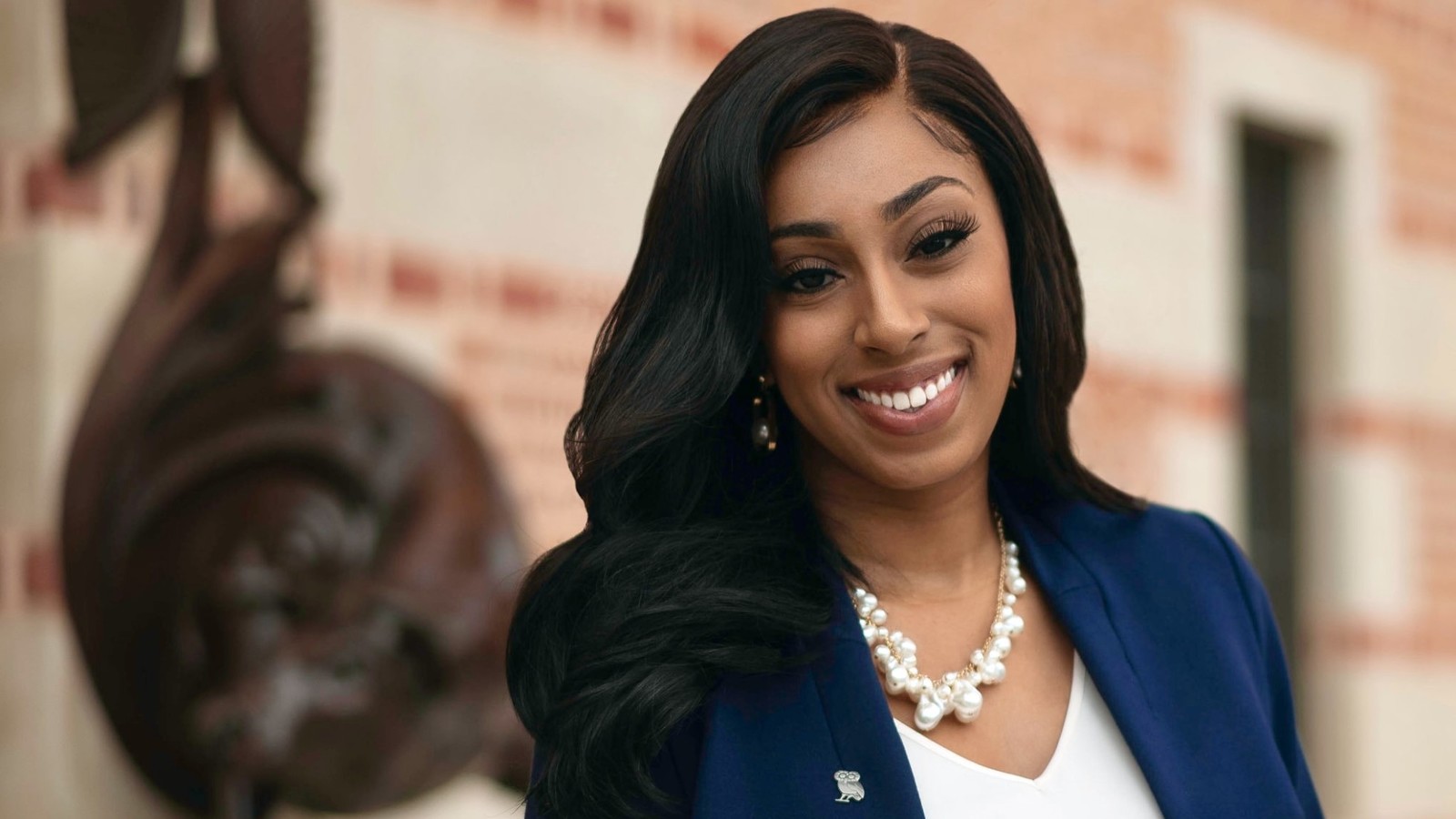
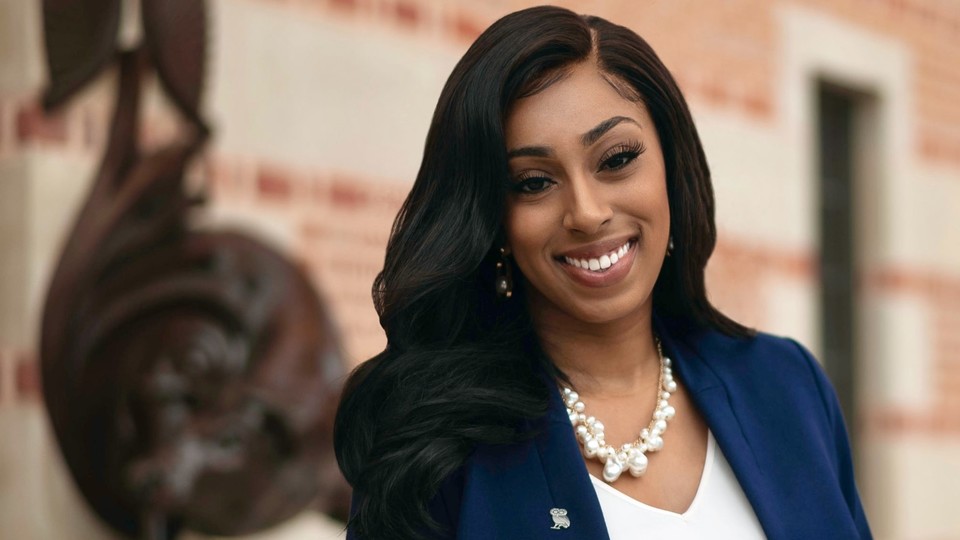
What was your pre-MBA Industry and function?
- Oil, Gas & Chemicals
- Sales Account Management
Post-MBA Industry?
- Consulting
- Senior Strategy Consultant
Why did you want to pursue your MBA?
I knew that pursing my MBA would be a critical step in transforming my ambitions into reality. I aspired to not only continue fast-tracking professionally, but also venturing into entrepreneurship. I knew that an MBA would be the accelerator I needed to achieve my goals.
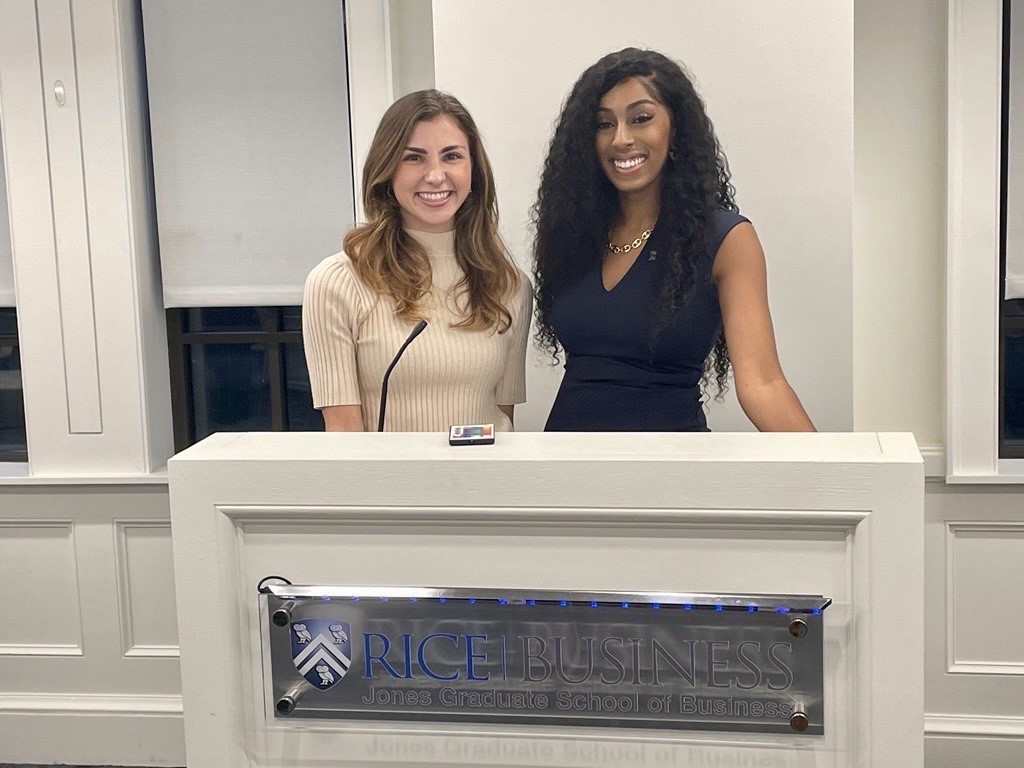
Why did you choose Rice Business?
I want to make transformative and meaningful change in my community and industry, and I knew that an MBA from Rice Business would help me achieve that. The best thing about Rice is the people. The community that you build during your time in the program become lifelong supporters, resources and, most importantly, friends.
What are you most proud of from your time at Rice Business?
I am most proud of my on-campus involvement. From serving as president of the Jones Student Association for Professionals, to helping shape the next group of admits through the Ambassador Program just to name a few. Through my involvement I have been able to leave a lasting impact on the community that has changed my life for the better. It was my way of saying thank you, and hopefully leaving the campus a little better than when I entered it.
What are you most proud of in your career?
I am most proud of my mentorship involvement. I have always had amazing mentors and people who are invested in ensuring I succeed. I feel it is my duty to continue that effort and always reach back as I continue to move upward in my career.
How has the Rice MBA helped you in your career?
The Rice Professional MBA experience has taught me to be agile. Pursuing my MBA and working full time, while starting my own business amid a global pandemic — sounds crazy right? I didn’t know how I was going to do it but I knew that Rice Business would never let me fail. This community provided the support, people, and experiences necessary to force me outside of my comfort zone. I am graduating with an unwavering confidence about myself and my ability to do whatever I set my mind to.

What does it mean to you to be a woman in business?
To me, being a woman in business means that I have a responsibility and opportunity to help other women succeed. It means working twice as hard and showing up as my best in every room I enter. Representation matters, and as a woman of color It is my hope that the work I am doing today will help inspire and encourage the next generation of leaders that come after me.
What advice would you give prospective students who are considering an MBA?
Your MBA experience is yours to own, and you will get as much out of it as you put into it. No more no less. I encourage every potential admit that I meet to find ways to get involved and grow your personal and professional community. Rice provides the people and experiences that will help shape the trajectory of your future. It’s only of benefit if you take full advantage.
Do you have any other comments or anecdotes to share?
In the spirit of Women’s History Month, I would be remiss if I did not take the opportunity to acknowledge the remarkable women and women of color who came before me. Through their sacrifice and determination, they made possibility a reality for so many of us. I owe so much to them and to the next generation of women leaders thereafter.
You May Also Like
Meet Christina Tamayo, MBA '22
Meet Christina Tamayo, a member of the Full-Time MBA Class of '22
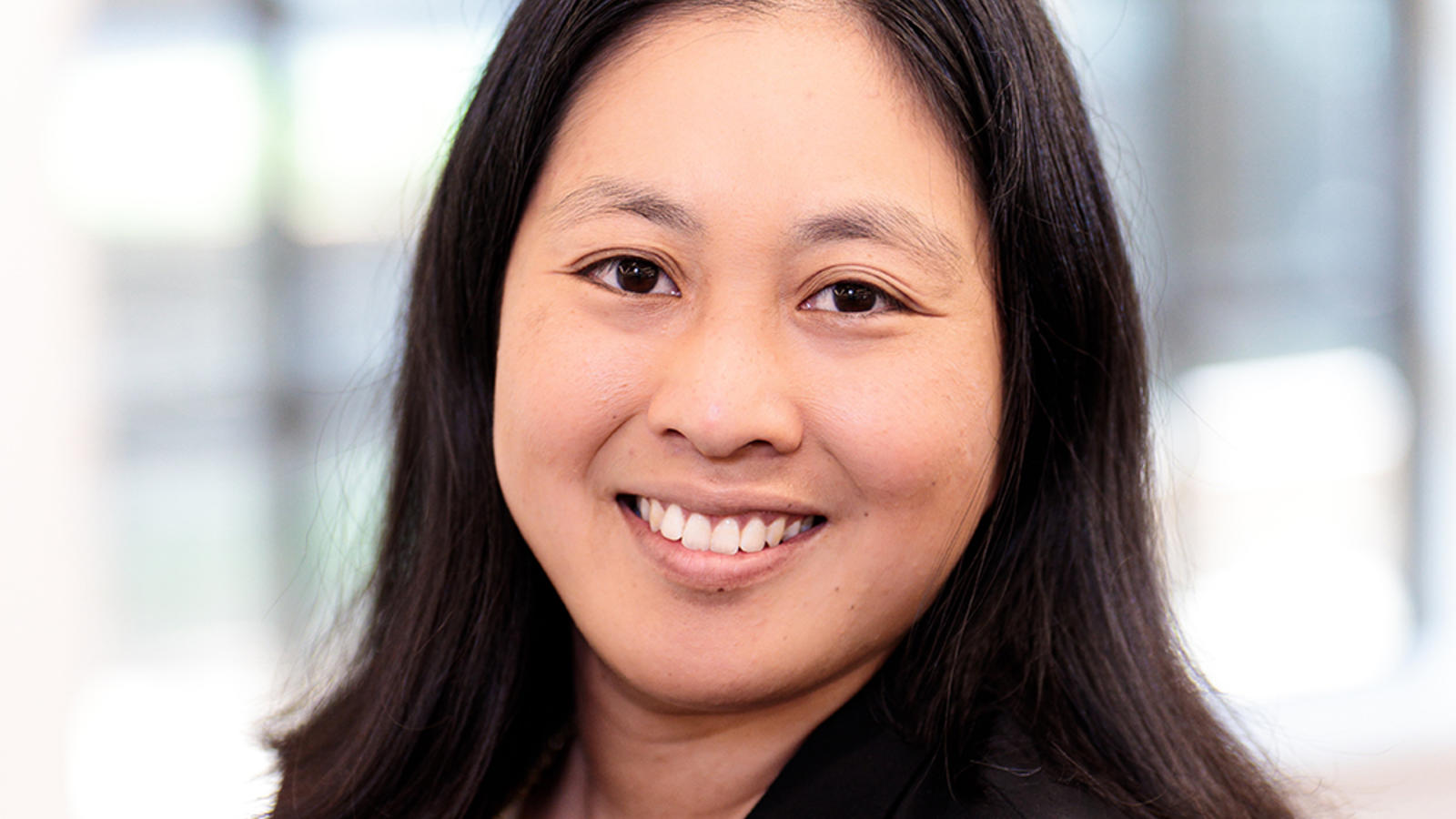
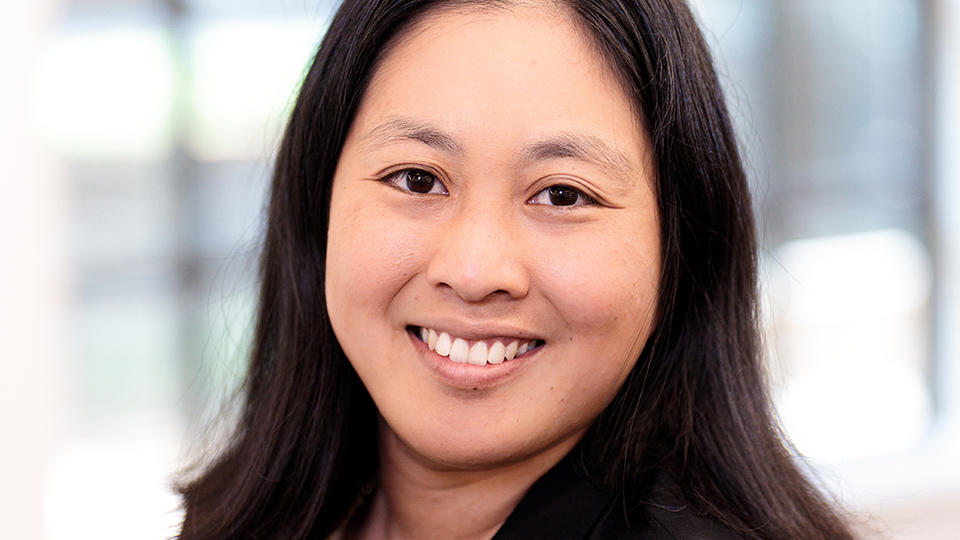
What was your pre-MBA Industry and function?
- Military, US Army Military
- Police Officer
What will be your post-MBA Industry?
- Energy transition, renewables, cleantech, innovation, sustainability
Why did you want to pursue your MBA?
The Army gave me a broad operational and leadership experience, so in the next chapter of my life, I wanted to marry my experiences with equally potent quantitative skills. I knew I wanted to move into something sustainability focused, so an MBA was a way for me to explore what my next career looks like. I became passionate about the idea of how to commercialize technology or ideas that decreases environmental impact, while generating profit for all stakeholders. I wanted an MBA to see what it takes to form, run and maintain successful businesses. An MBA is a platform for transformation, to enhance my network and personal exploration. I wanted the opportunity to let my intellectual curiosity roam free while meeting peers who are equally or more driven than me to make an impact with their MBA.
Why did you choose Rice Business?
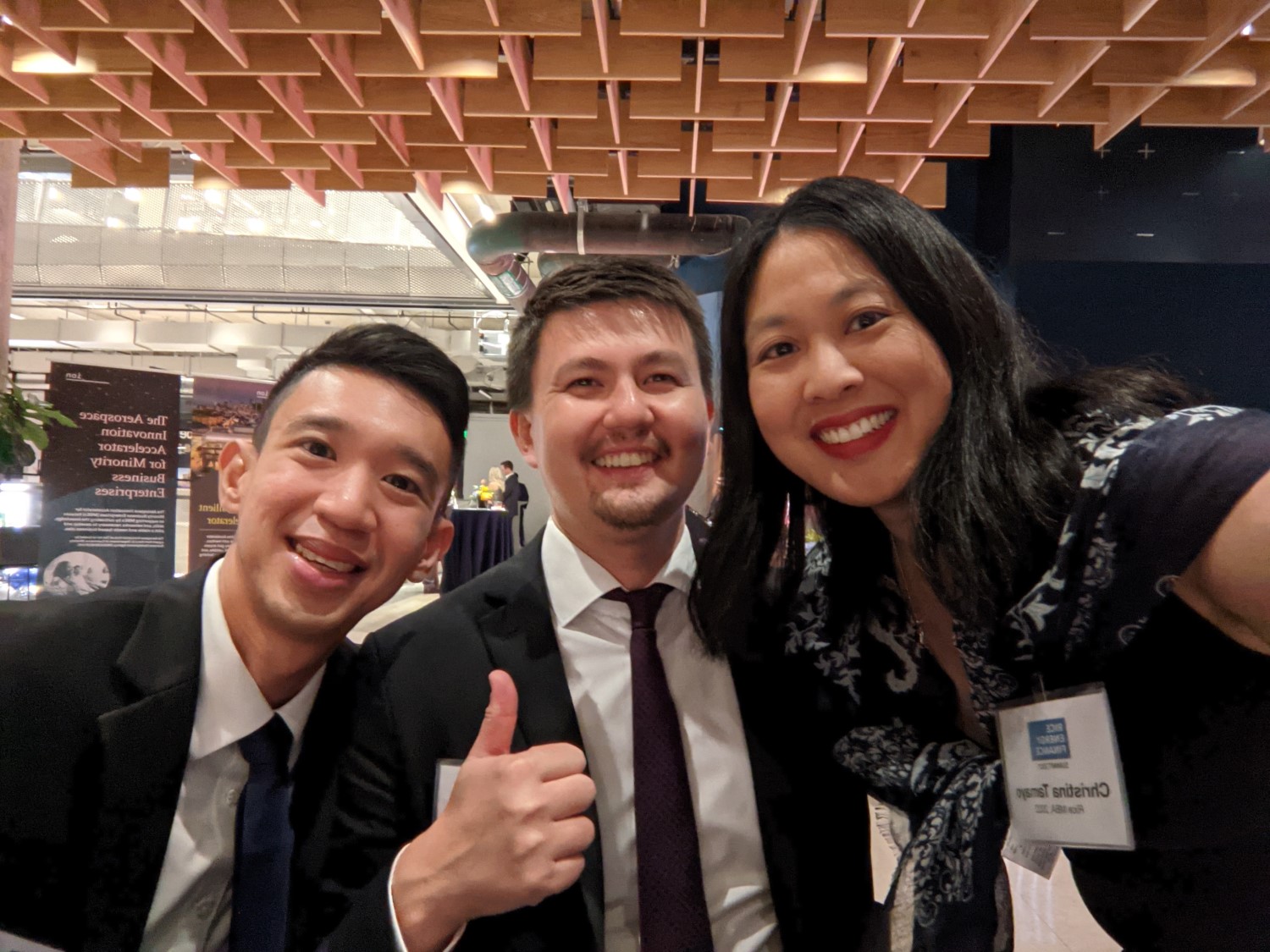
The community aspect of Rice is what attracted me. My husband and I recently transitioned out of the Army, and at the same time had our first child. We were both looking to do our MBA. We knew we wanted a supportive community because we were in such a transformative time in our lives. The access to professors, resources and spirit of collaboration were much like I experienced during my time at West Point. I craved an intimate learning experience among a like-spirited, yet diverse group of peers. You can feel from every student that it’s about collaborating and learning, not competition at all costs.
As far as exploring a new career in sustainability — I knew Houston as the Energy Capital of the World, as I’m a native Houstonian, born and raised. However, I left when I was 18 to start a life and career in the military. When I returned 12 years later, I wondered how Houston was adapting to a growing demand for cleaner energy and a more circular economy. I came to Rice Business to explore how sustainability, energy, and business can grow together. The backdrop of Houston and its growing innovation corridor was another attraction that brought me to Rice
What are you most proud of from your time at Rice Business?
I’m most proud of my peer leaders in the Cleantech and Energy Associations putting their faith in me to create a national case competition from scratch. I had no idea I was capable of this when I started my MBA. I call this my start-up experience. I served as the executive chair. I drove group goals, planning framework and fundraised from our collective network. We recruited first year students and soon enough we had a full development team! The competition is called the Rice Business Energy and Cleantech Case Competition (RBEC3). We had a huge number of alumni and industry partners volunteer for the coffee chat portion of our event. Professor Linda Capuano was invaluable in helping mentor us as she on-boarded for her inaugural year of teaching at Rice Business and advisor to the dean on energy initiatives. Our Executive MBAs also reached out to their networks and helped judge. In our first year, we had 9 teams from across the country compete — more than some other well-established energy case competitions! I am proud and humbled that my classmates believed in the vision and helped create and execute this fantastic event, which was held in concert with the Rice Energy Finance Summit.
What are you most proud of in your career?
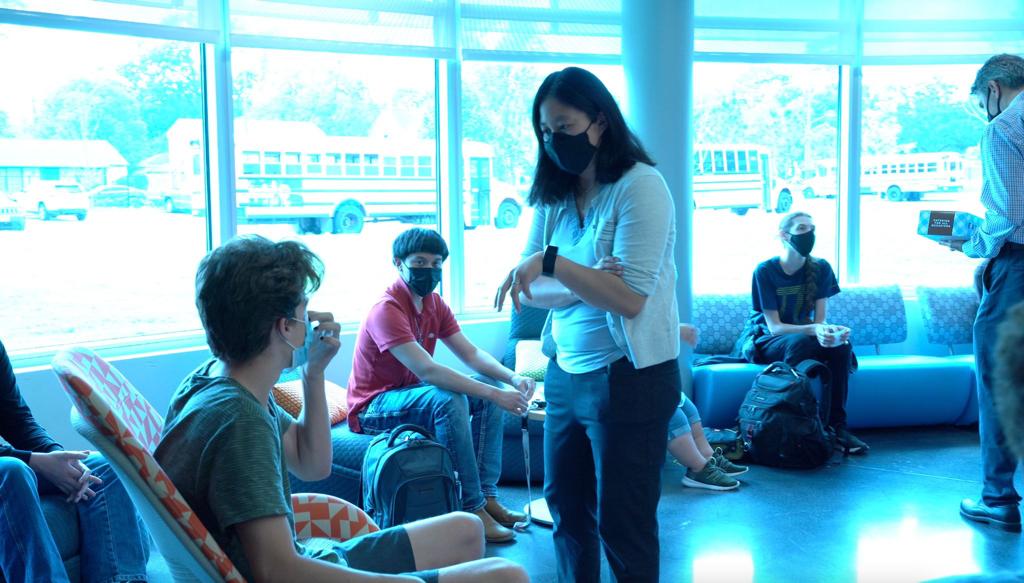
There’s a Poets and Quants profile of me out there, that talks about my accomplishments as a lead planner for emergency response plans while deployed in Korea. While I’m still proud of that as a singular accomplishment, my career continued to grow outside of the classroom. In August 2021, the U.S. military evacuated its presence out of Afghanistan. Though I didn’t deploy there, many of my friends did, including my husband. I could not stand by with the thought that their friends and allies were in danger, with nowhere to turn. These allies were the ones who risked their lives to make sure my friends and family could come back home.
I started by trying to help evacuate an Afghan Army officer I went to school with early in my career. I then joined a group of West Point graduates who were using our collective network and tech savvy to guide hundreds of Afghan allies and their families to safety. I helped scale and formalize the assistance process at Allied Airlift 21. At one point, I had two U.S. Ambassadors calling me, to see how they could help — the whole situation was wild. I used every skill from my Army career, like delegation and transparent communication, plus my MBA lessons, like the importance of governance, operations principles of optimization, and seeking experienced directors to grow and guide ‘startup’ strategy. Allied Airlift 21 still serves thousands of allies through its secure database product and case manager service, all in concert with the U.S. Government, and collaboration with partner organizations. The family I originally set out to help made it to the U.S. and are currently settled in Chicago. I am now engaged in providing financial support and guidance for them alongside another veteran.
How has the Rice MBA helped you in your career?
The MBA gave me the confidence and platform to build a new network of professionals and mentors from which I can learn from and contribute. I now have the base skills in the language of business to start a conversation at an educated foundation with even the most senior of managers. I understand how complex models are built and the strategic choices common among big corporations or small startups. I’m appreciative of the academic rigor of the program that helped me become familiar with the language of business. The supportive network of professors, alumni and students pushed me to re-think what’s possible for my own career.
What does it mean to you to be a woman in business?
Being a woman in business is letting people know that my diversity, whether it be biological or cultural, is my strength. Before my MBA, I worked in a male-dominated career field. I want other women to know that it’s ok to be the only one of you in the room, because that’s exactly how it is for everyone else. We are all special for our unique experiences, skills and attributes. The highest-performing teams I’ve been on have one thing in common: They appreciate each other’s unique mix of skills, attributes and experiences and leverage that to create innovative and resilient solutions.
What advice would you give prospective students who are considering an MBA?
Education is a worthwhile investment. Institutional learning is your opportunity to take risks. You get the chance to fail fast and often, while learning from it. All the while you’re surrounded by guides, mentors, and cheerleaders, too. Yes, you are forgoing two years where you could be earning a full salary, but you are honing your edge in a way that is not possible in the workforce. It will burn you out, make you laugh and cry (maybe at the same time). An MBA will challenge you and reaffirm the core attributes that make you strong. An MBA is not for the faint of heart. It’s for those who want to make big impacts and understand the value of growing through challenge. Know that you can have a plan coming into the MBA and that it’s ok to change directions. You don’t know what’s out there if you haven’t been exposed to it.
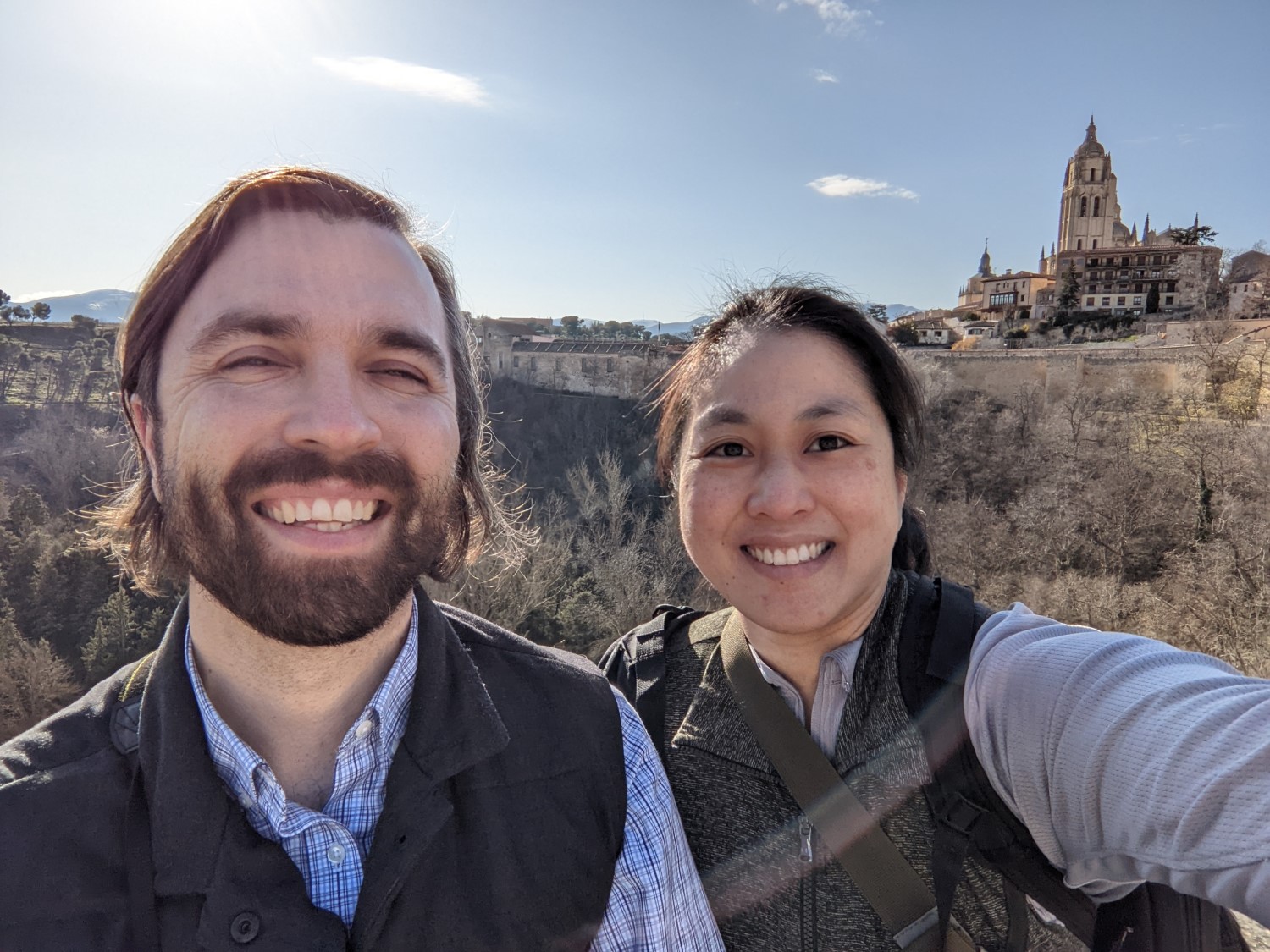
More about me:
I’m a proud member of the following organizations:
- Cleantech Association, co-president
- Strategy Association
- Women in Business
- Veterans in Business
- Rice Business Energy and Cleantech Case Competition, Executive Chair
I’m a mom of a two-year-old and a cat, and married to a Rice MBA (husband Alex Stodola, class of 2022 PMBA). The fun in both of us going through the program at the same time, is that we have such divergent intellectual curiosities and take completely different classes. It’s really shown me how Rice Business is designed to allow everyone to explore and make their own best path and version of the MBA experience
You May Also Like
Meet Andrew Waguespack, MBA '22
Meet Andrew Waguespack, a member of the Full-Time MBA Class of '22 and Men as Allies club representative for the 2022 Women In Leadership Conference.
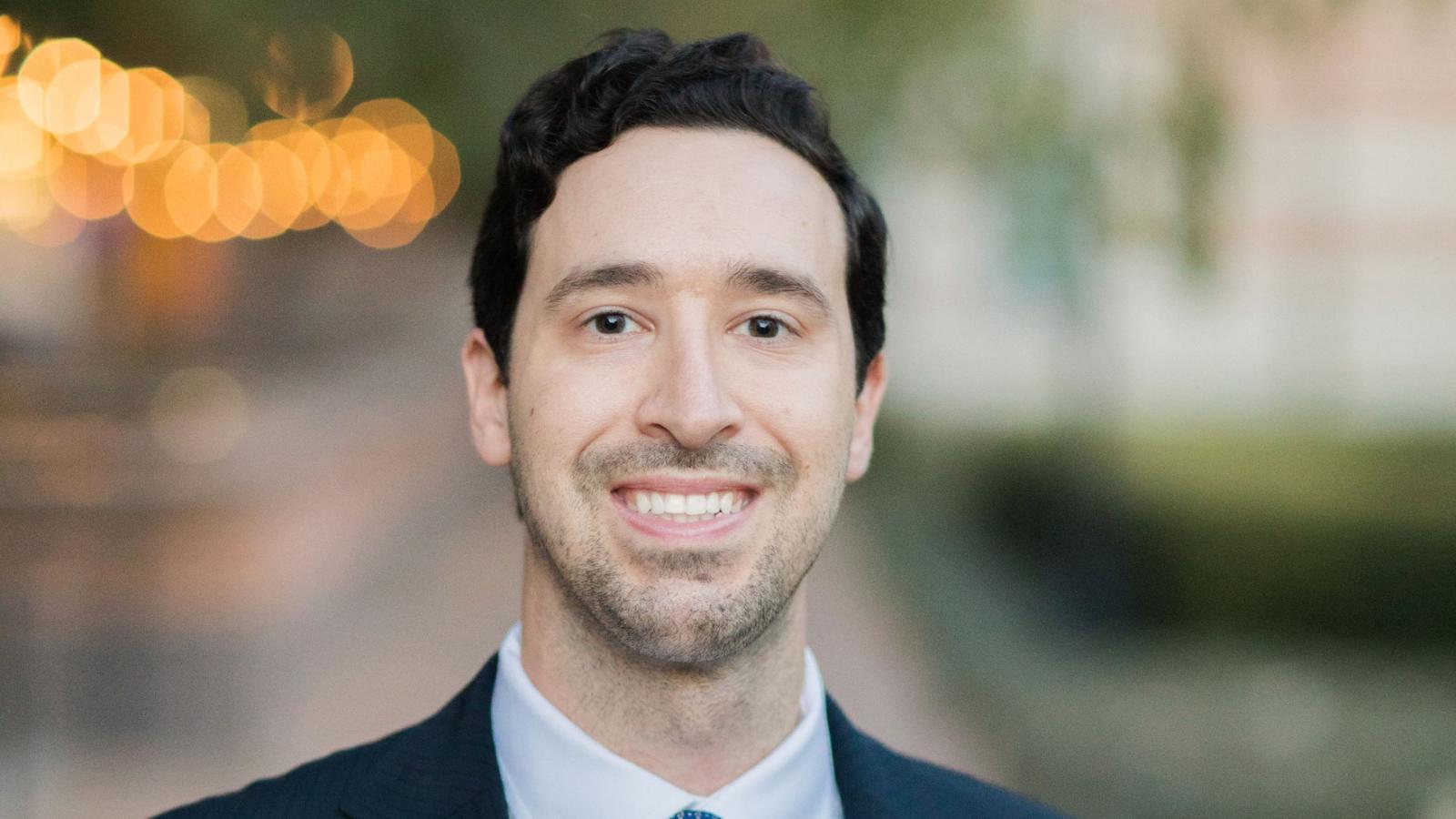
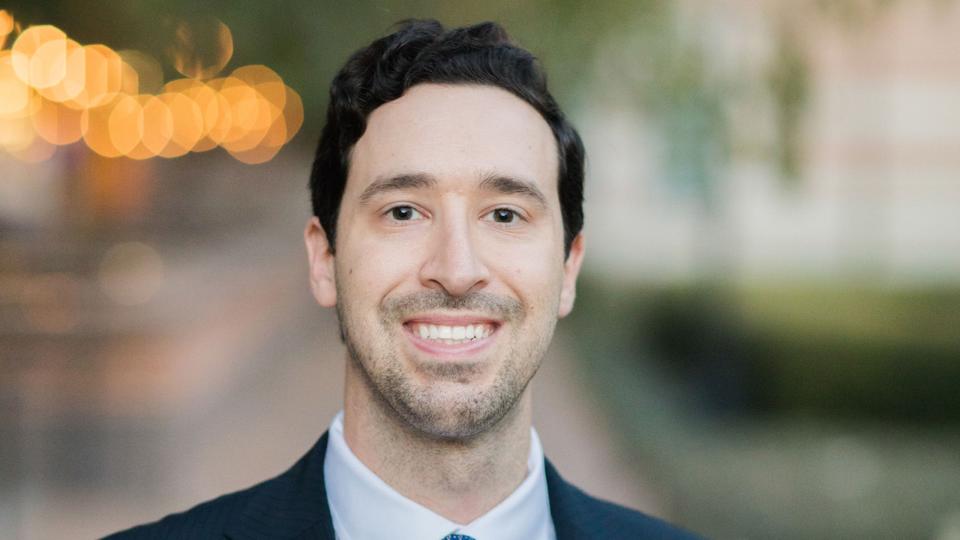
What was your pre-MBA Industry and function?
- CPA in External Audit and Financial Due Diligence
What will be your post-MBA Industry and function?
- Management Consulting
Why did you want to pursue your MBA?
During my undergraduate corporate accounting internship, I was introduced to two individuals who worked in the Corporate Development department, both of whom had MBAs. Throughout the rest of the internship, they would take me to lunch and share their experiences and how the MBA path accelerated their careers. It was that summer in 2012 I purchased a U.S. News Best Graduate Schools magazine and began thinking about what it would be like to have the opportunity to attend an MBA program one day. Three years later I moved from Louisiana to Houston to begin my accounting career. Six years into my career I decided it was the perfect time to pursue an MBA to polish my finance, leadership, and business strategy skills and expand my network.

Why did you choose Rice Business?
Having worked in a client facing role in Houston, I have seen firsthand the advantages that having a Rice MBA brings to the table. My fellow Rice MBA colleagues at my previous job shared a unique camaraderie among their peers and clients alike, one that emphasized teamwork, collaboration and respect. Every Rice Business alum I encountered throughout work engagements, recruiting visits and community events were eager to share their insights, experiences and advice, making the program feel like home. I also knew the smaller cohorts would offer a more personalized experience which was important to me.
What are you most proud of from your time at Rice Business?
I am most proud of the sense of community at Rice Business. I look back on the times spent helping each other with interview prep and all the hard work that goes into recruiting. It is a rewarding feeling seeing others succeed and being able to pay it forward to the next class of Rice Business students.
What are you most proud of in your career?
I am most proud of earning my CPA license and being able to share that moment with my family. My mother is also an accountant but never had the opportunity to finish her CPA exams. Being able to dedicate it to her for the sacrifices she made for my siblings and me is something I am most proud of in my career.
How has the Rice MBA helped you in your career?
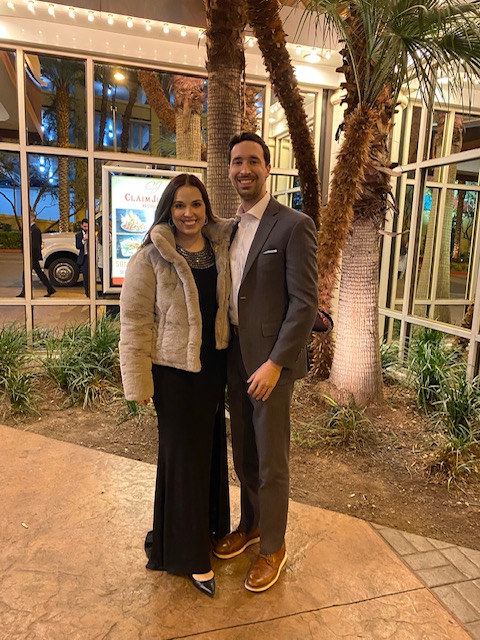
The Rice MBA experience helped me to step out of my comfort zone and embrace change. Leaving a full-time job and switching careers is daunting, but I have no doubt that this experience has only made me more prepared to handle uncertainty in the business world. Further, the diversity of thought and how different individuals approach business problems has helped me develop a more well-rounded mindset.
Why is it important to you to support women in business?
As my mother re-entered the business world after 12+ years raising my brothers and me, I recognized the unique challenges that women face in the workplace. Seeing firsthand the struggles she experienced, I felt it was important to gain a better understanding of how to be an ally to women like my mother.
What advice would you give prospective students who are considering an MBA?
I spent several years thinking and talking about it but hesitated when it came time to leave my job. I would encourage everyone to go for it. It has been a challenging but incredibly rewarding process and I am very happy I did it. I have met lifelong friends and look forward to joining the Rice Business alumni network.
You May Also Like
Meet Chaundra Frank, MBA '22
Meet Chaundra Frank, a member of the December Class of 2022 for MBA@Rice.
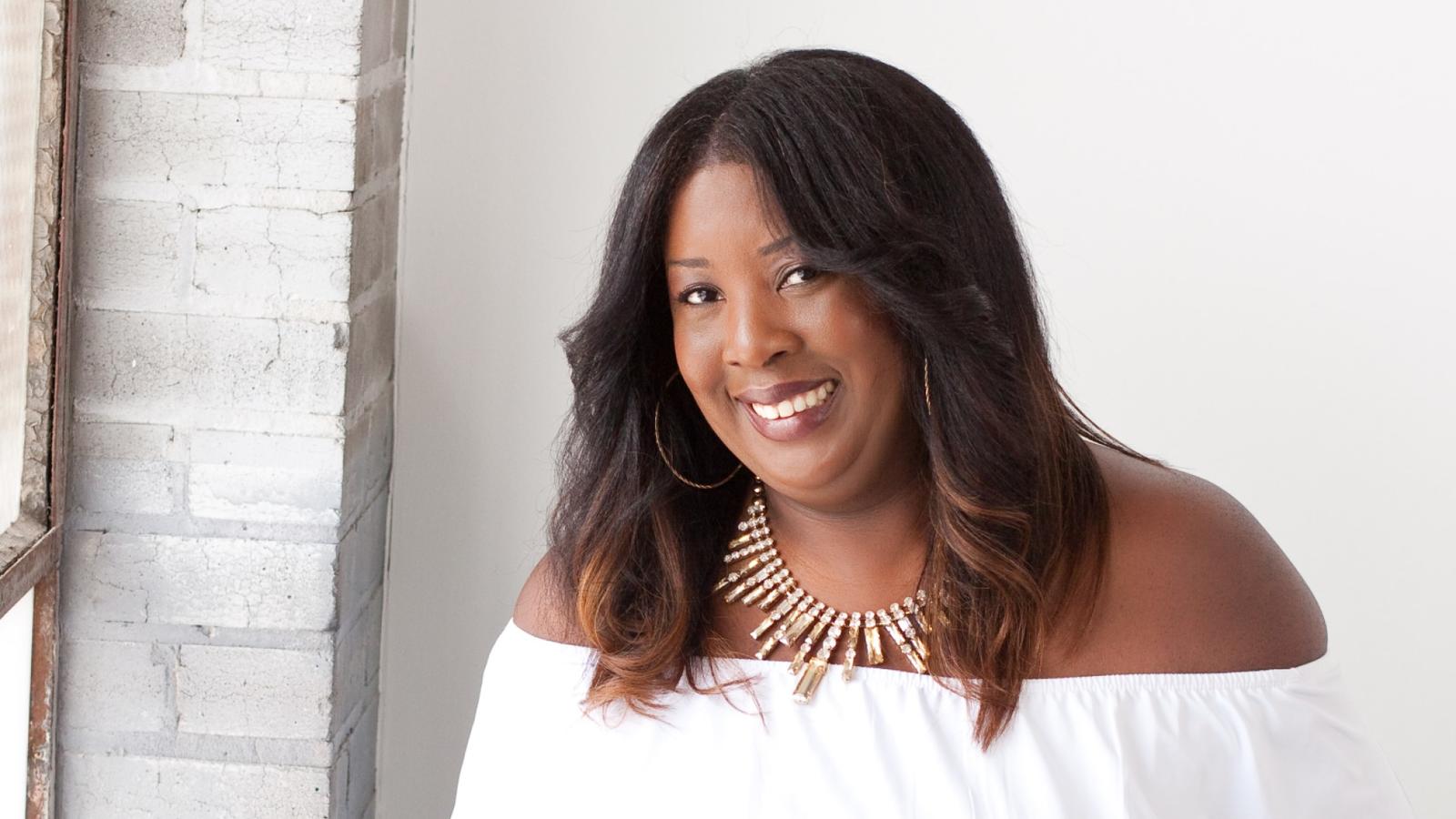
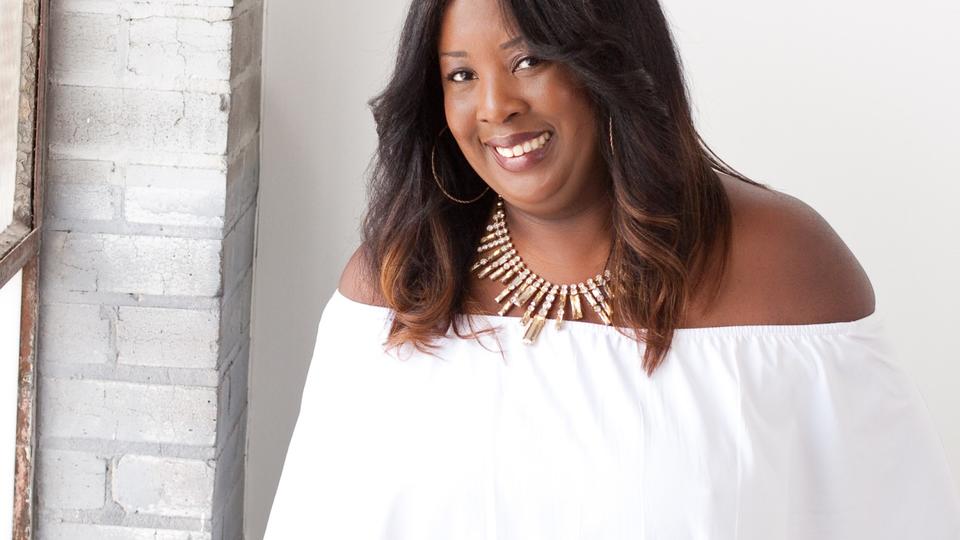
What was your pre-MBA Industry and function?
I started my career as a natural gas trade analyst at Shell Trading after I graduated from Rice with a B.A. in economics and managerial studies in 2000. Following my experience at Shell, I embarked on an exciting and fast-paced career in management consulting, private equity and, most recently, education.
What will be your post-MBA Industry and function?
I am happy to announce that I have accepted a position with the Houston Botanic Garden as the vice president of finance.
Why did you want to pursue your MBA?
It’s never too late and you’re never too old to become better! I wanted to pursue my MBA to “build a new muscle.” I want to be conditioned and stretched to see things through a different lens allowing me to demonstrate new leadership and management skills for future endeavors. I wanted to further develop with the many fascinating people at Rice Business.
Why did you choose Rice Business?
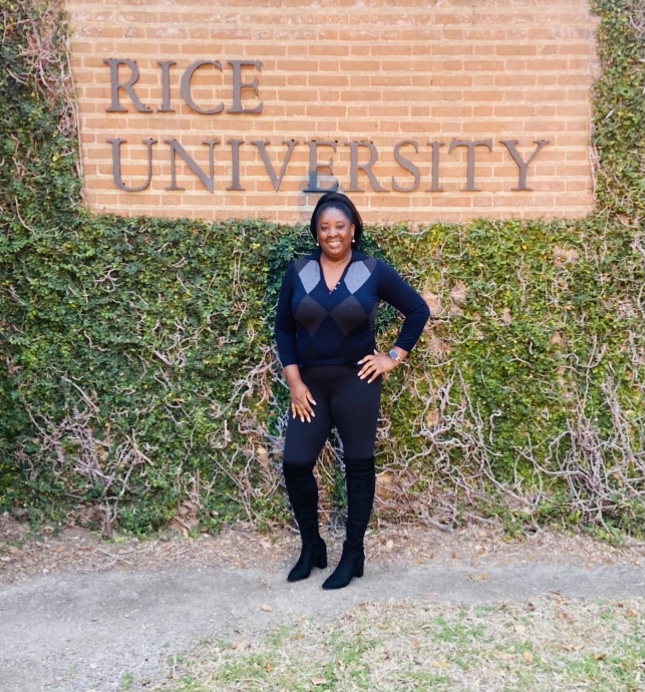
Growing up in Houston, my parents always found an excuse to pass through Rice’s campus. Whether it be the highlight of a Sunday drive, basketball camp or robotics camp, I am no stranger to the university. Matter of fact, I signed my letter of intent with the NCAA to attend Rice University and run track in 1995 after multiple college visits around the country. Rice just seemed like home. I chose Rice Business because it was familiar. I love the city of Houston and all of the possibilities in it. I have a deep connection to the Rice community and wanted to be a product of one of the best business schools in the world. I am Rice “Twice” and my motto is the “Second me, will be the better me.” Continuing to refine my capacity to navigate complex environments and difficult situations is what attracted me to Rice “again.”
What are you most proud of from your time at Rice Business?
MBA@Rice is still in its infancy, and I am proud to lead the development of a new student association for our program. I am also the president of the MBA@Rice Board Fellows program launching our new pilot program in April. I am a proud member of the Black Business Student Association and Rice Business Women’s Organization. I am currently enrolled in the first Women in Leadership Cohort provided by the Doerr Institute for New Leaders. I’m extremely proud to be part of this pilot program filled with diverse and impactful women leaders. Last, but not least I successfully completed Lilie’s Launchpad program and have taken a huge step in my entrepreneurial journey.
What are you most proud of in your career?
I am proud that I keep evolving, achieving new goals and doing my best to make a positive impact in the world. I am proud of the success of my nonprofit organization, Lake Houston Youth Sports Association. I am proud of my students and athletes that I have learned so much from, and I am proud that I continue to navigate through this journey while doing it my way. My way means finding the courage to walk into my story, own it and write the ending!
How has the Rice MBA helped you in your career?
The obvious answer I think everyone expects is that an MBA will enhance your marketability as a professional and increase the quality and quantity of job opportunities. The Rice MBA has done much more than that. Pursuing my MBA at Rice in the MBA@Rice program has redefined my perspective of business and how I personally impact and contribute to the bottom line. Business looks very different than it did 20 years ago when I graduated from Rice the first time. We were just learning the purpose of an email address! Fast forward, now we are conducting business virtually, anywhere and anytime. Combining my years of experience with the willingness to take on a new style of learning from a top-tier program has helped me develop the skills and competency to be successful in this new age of business. Fresh ideas and a new mindset are top of my list.
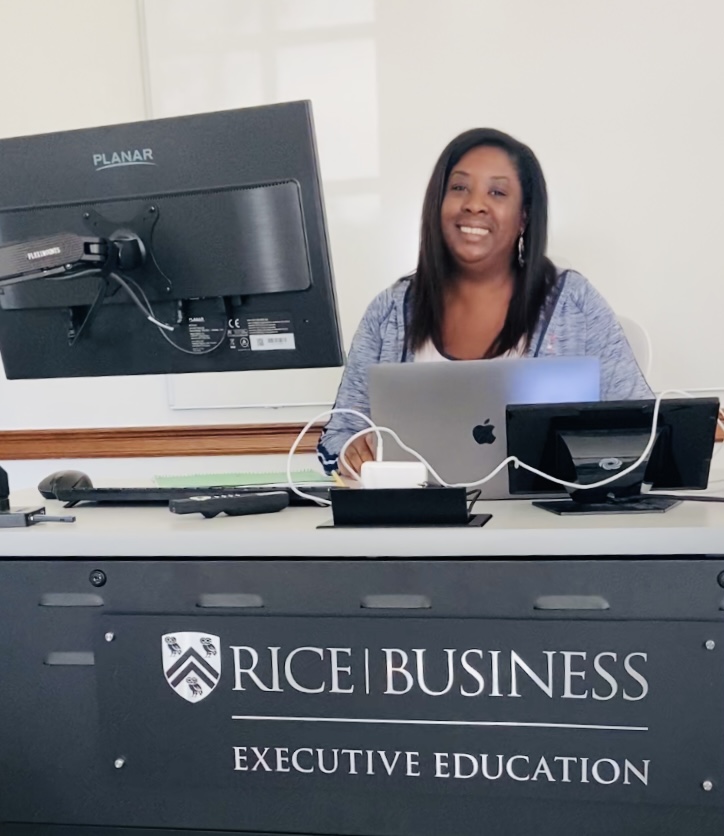
What does it mean to you to be a woman in business?
For me, being a successful woman in business means creating your own path while being confidently feminine, eloquently fierce and passionately engaged. All too often, young girls are taught to be seen and not heard. Over the years I have learned to ditch that old adage and speak with purpose and conviction. Your words are powerful and your actions are a reflection of what you believe and think of yourself. Most importantly, as women we must empower, support and encourage each other to level up and be the best version of ourselves, especially in business. This means love and take care of yourself so you can be the best, true and authentic YOU.
What advice would you give prospective students who are considering an MBA?
As a more seasoned MBA student, this decision was very cumbersome for me. I had my doubts and wondered if an MBA would be worth it after working for 20 years. The answer is YES! I know firsthand that it is never too late, and you are never too old to become better. The key word is BETTER. Placing myself in an environment to be challenged while immersing myself in as many resources this program provides was the best decision I ever made. The network is invaluable. The faculty and staff is impeccable. My classmates (in all programs) are brilliant, diverse and eager to make a difference beyond the hedges of the university.
You May Also Like
How Trauma Led to Triumph feat. Jen Paquette ’19
Season 2, Episode 10
Host Christine Dobbyn is joined by Jen Paquette ’19, who discusses how trauma in her life has influenced her career path, her work with nonprofits and the military, and how it's helped prepare her to work with new business owners.
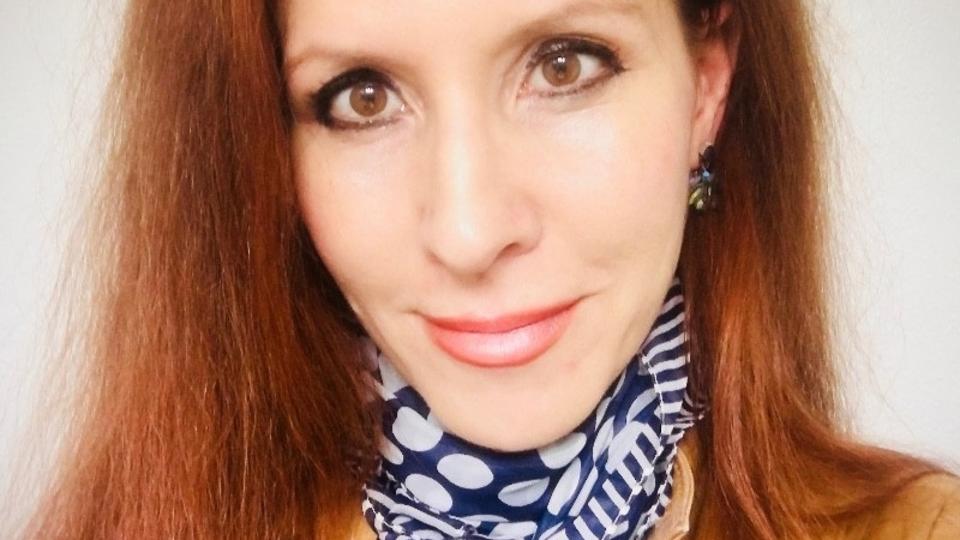
Owl Have You Know
Season 2, Episode 10
Host Christine Dobbyn is joined by Jen Paquette '19, who discusses how trauma in her life has influenced her career path, her work with nonprofits and the military, and how it's helped prepare her to work with new business owners.
Subscribe to Owl Have You Know on Apple Podcasts, Spotify, Youtube or wherever you find your favorite podcasts.
